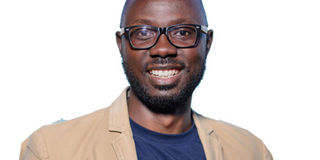57 years after independence, what is Uganda’s story?

Benjamin Rukwengye
What you need to know:
Learnt nothing. On the occasion of our 57th independence commemoration, I will extract a line from your history class about those guys who learnt nothing and forgot nothing. The concern, for everybody should be how young people who will be in charge of our future know so little about our past.
Early this year, we were discussing a blog post about Kampala’s racist designs as part of a session on identity. I asked a group of young people in their Senior Six Vacation to name Ugandans who they wish would have a road named after them. I was startled.
Discussions about identity can be confusing, especially for people who know so little about themselves. To illustrate how shallow our teaching and understanding of history is, try asking anyone at university or below, to list 20 great Ugandans and their influence on our history.
Better still, if you were born post-1986, try doing this in your free time or with a group of friends. And if you are a parent, and discover that you can’t hack this assignment, be alarmed, for your offspring especially. Remember that this is not to simply exercise your memory, but that events and people have a bearing on what a society is.
So while thinking about this week’s column, I wondered who – and where – are the great Ugandans? If we had to compile stories of our past, as a way to influence the future, who and what would we write about?
Two years ago, I bought a book published by a British national newspaper, The Times, titled, Great Lives: A Century in Obituaries. It chronicles 124 of the most influential figures of the last 150 years.
From sportsmen to politicians, religious leaders, military personnel, artists, humanitarians, musicians, et al, drop a name and they have a detailed obituary of all of them – Lord Kitchner, Adolf Hitler, Sigmund Freud, Princes Diana, Pablo Picasso, Steve Jobs – all of them.
I haven’t gone through all the obituaries but some of the featured influential figures owe their historical influence to exploits in Africa – as agents of colonialism. What strikes you though, but perhaps unsurprising, is the dearth of Africans on the list. It is so abysmal that the person who makes the cut is, no prizes for guessing, is Nelson Mandela.
It is obvious why. Nobody is going to tell our story if we don’t. But if we don’t, we’ll still have to consume others’ stories because ours won’t exist. And if you want to know the danger of not telling your story, here is a more recent reference.
Last year, at the height of #Togikwatako, those opposed to the lifting of the age limit often quoted the Preamble of the 1995 Constitution.
For those still not independent enough to afford expensive data bundles, I will quote:
“We the people of Uganda: Recalling our history which has been characterised by political and constitutional instability; Recognising our struggles against the forces of tyranny, oppression and exploitation; Committed to building a better future by establishing a socio-economic and political order through a popular and durable national Constitution based on the principles of unity, peace, equality, democracy, freedom, social justice and progress; […] Do hereby, in and through this Constituent Assembly solemnly adopt, enact and give to ourselves and our posterity, this Constitution of the Republic of Uganda, this 22nd day of September, in the year 1995.”
Is it possible that pro-amendment Members of Parliament would have gone about that process with less hysterical gusto, with different historical context? Most, if you care to check, spent their formative years cramming notes about some fellow called Louis XVIII and the Napoleonic wars. And whatever detailed history they know somewhat deliberately excludes anything that predates the NRM government.
So outside of what we have been told by outsiders about us, who are we? What defines us? What are our experiences and values? Who are our heroes? What are their stories? What does our past tell us about our future? What do you tell your children and learners about their country and its aspirations?
Here is a less bothersome place to start, if you want to answer these questions. Lead the way; old students associations, the police, army, prisons, the church, sports clubs, and cultural institutions. Profile your great old people, so that today’s lot can learn about them.
On the occasion of our 57th independence commemoration, I will extract a line from your history class about those guys who learnt nothing and forgot nothing. The concern, for everybody should be how young people who will be in charge of our future know so little about our past.
Fix this anomaly now or it will end in tears.




